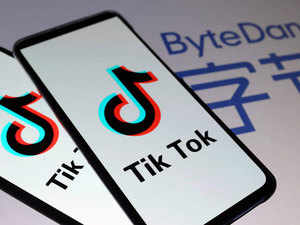
India has banned 59 Chinese apps including TikTok, Shareit, Mi Video, and UC Browser amid tension between two countries.
The country’s IT ministry invoked Section 69A of the IT Act 2000 that lets the government block services if they’re deemed dangerous for sovereignty and integrity of the country:
The Ministry of Information Technology, invoking it’s power under section 69A of the Information Technology Act read with the relevant provisions of the Information Technology (Procedure and Safeguards for Blocking of Access of Information by Public) Rules 2009 and in view of the emergent nature of threats has decided to block 59 apps since in view of information available they are engaged in activities which is prejudicial to sovereignty and integrity of India, defence of India, security of state and public order.
The ministry accused these apps of “stealing and surreptitiously transmitting users’ data in an unauthorized manner to servers which have locations outside India.”
BREAKING: Full statement from the Indian Govt’s Ministry of Electronics & IT. Statement says the apps are “engaged in activities which is prejudicial to sovereignty and integrity of India, defence of India, security of state and public order”. pic.twitter.com/AJLdfZ9ipP
— Shiv Aroor (@ShivAroor) June 29, 2020
The list includes some major names such as TikTok and Helo that has hundreds of millions of users in India. TikTok has more than 200 million users in India and almost a third of its downloads are by the users in the country. Last year, the Bytedance-owned short video app was banned in the country for a short time for its ‘objectionable content’.
Counterpoint analyst Tarun Pathak said that roughly one in three smartphone users in India will be affected by it.
Digital rights organization Internet Freedom Foundation explained in a twitter thread there’s no detail if the IT Ministry has issued an order and followed due process to ban these apps.
Short statement on website blocks ordered by @GoI_MeitY.
1. The basis of this statement are media reports which carry a press release. This is not a legal order issued under Section 69A. Our first ask is transparency and disclosure.
— Internet Freedom Foundation (IFF) (@internetfreedom) June 29, 2020
India-made apps and startups are applauding this step and already claiming victory over their Chinese counterparts. Earlier this month, Google booted out the “Remove China Apps” app from Play Store that ‘helped’ people in identifying and removing China-made apps.
https://twitter.com/sharechatapp/status/1277673479186178048?s=20
Swadeshi Roposo made by Indians for Indians #AtmanirbharBharat #VocalForLocal #SwadeshiRoposo pic.twitter.com/7QRRpORRvw
— Roposo (@RoposoLove) June 29, 2020
Bold step in the national interest. A step towards Atmanirbhar App ecosystem. Time for the best Indian entrepreneurs to come forward and build the best by Indians, for Indians!
ये है भारत की डिजिटल क्रांति ! 🇮🇳#आत्मनिर्भरभारत— Vijay Shekhar Sharma (@vijayshekhar) June 29, 2020
India and China have been involved in a skirmish at the border for a few weeks now. The fight resulted in the death of 20 Indian soldiers.
We’ve reached out to ByteDance and Xiaomi for a comment, and we’ll update the story when we hear back. Additionally, we have also emailed Google and Apple to understand if they will need to delist these apps from the Play Store and the App Store. At the time of writing, all these apps were available to download in both stores.
You can check out all 59 apps banned by India here.
Read next: Cash App eclipsed Venmo during the pandemic, according to this one metric
Celebrate Pride 2020 with us this month!
Why is queer representation so important? What’s it like being trans in tech? How do I participate virtually? You can find all our Pride 2020 coverage here.
